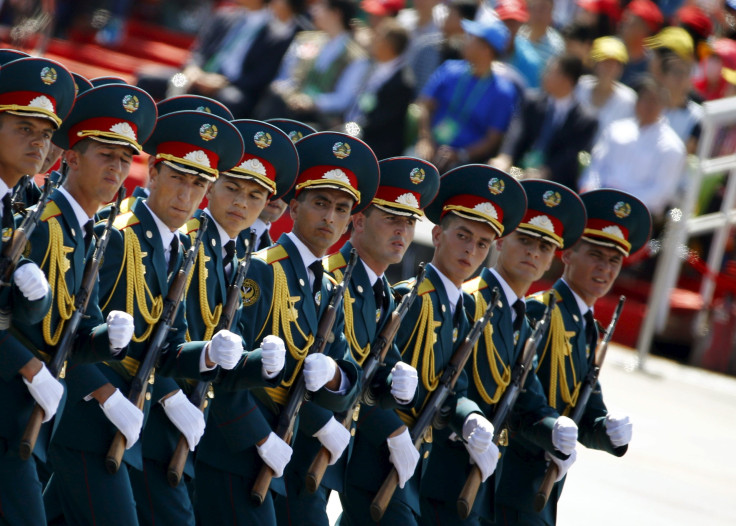Tajikistan Violence: Clashes Between Government Forces, Islamists Kill At Least 22

At least 22 people were killed in Tajikistan Friday in gun battles at an interior ministry building in the country’s capital Dushanbe and in the nearby town of Vahdat. Nine police officers and 13 attackers were among the dead, BBC News reported.
Tajikistan’s interior ministry said the shootings were premeditated efforts coordinated by Abdukhalim Nazarzoda, the country’s former deputy defense minister. Officials accused Nazarzoda of active participation in the attacks said in a statement released to state-run media. “Nazarzoda Abduhalim Mirzo took an active part and personally himself led the terrorist acts from beginning to the end,” the statement said.
The gunmen seized “significant amounts of weapons and ammunition” during the attacks, the interior ministry said. Government officials announced a formal investigation into the incidents and filed criminal charges against Nazarzoda. The former deputy defense minister and his allies remain at large.
Nazarzoda had served in Tajikistan’s government since 1997, after years of combat against government forces as a member of the United Tajik Opposition (UTO). But relations between Islamist groups and Emomali Rakhmon, the country’s longtime president, have remained rocky.
The U.S. State Department announced the precautionary closure of its embassy in Tajikistan in response to the incident.
“Although the significance of these events is unclear, they may be precursors to other acts of violence. The U.S. Embassy has been closed, and official Americans have been advised to shelter in place,” the state department said in a statement. “All U.S. citizens are advised to exercise caution.”
The clashes occurred days after the Tajik government banned the Islamic Revival Party from operating in the country, BBC News reported. A growing number of Tajik citizens have embraced actively embraced Islam, the country’s main religion, amid Tajikistan’s ongoing economic struggles. The government has attempted to crack down on Islamist groups.
© Copyright IBTimes 2024. All rights reserved.












